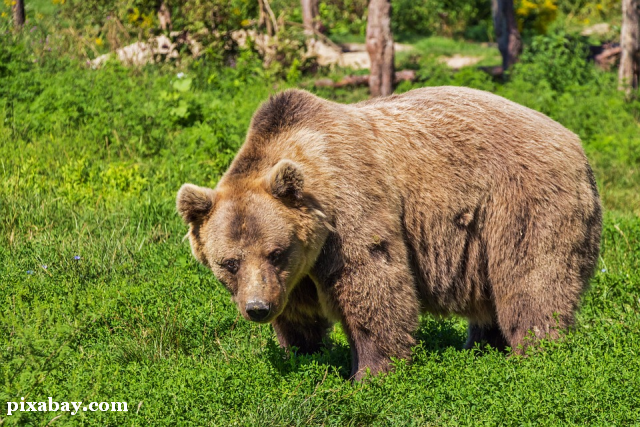Bears in the spotlight again
Bears have become an increasing sight in populated areas across Romania, and the authorities will have to take action to stop the damages

Corina Cristea, 24.10.2019, 13:55
In the last few
weeks dozens of people have called the emergency number reporting bears in
several populated areas in counties such as Brasov, Mures, Sibiu, Harghita,
Covasna, Alba or Bistrita Nasaud. A man was recently killed by a bear while he
was out fishing. Another man herding
cattle at the edge of a forest was also attacked by a bear and is now in
critical condition. These are not isolated cases, as bears coming down from the
mountains in search of food in nearby villages is a known issue. The reasons
behind this are diverse. Central to the problem seem to be large-scale
deforestations and bear overpopulation.
Romania is home to over 6,000 bears,
each of its wildlife reserves being overpopulated. The number has stabilized in
recent years, although habitats have been fragmented by the development of road
and tourist infrastructure. Bear habitats have also shrunk as a result of urban
development. All things considered, it is estimated that a viable bear
population for Romania should stand at 4,000. Marian Rasaliu, the prefect of
Brasov County, one of areas with the largest number of bear intrusions in
populated areas, points out urgent measures are needed, also suggesting the
relocation of animals to other countries. Data shows that Europe is home to
some 14,000 brown bears. Bulgaria hosts some 1,200 bears, Slovakia some 800
bears, Slovenia around 700 and Greece approximately 200 bears. The brown bears
are now extinct in Great Britain, and are endangered in France and Spain.
Northern Europe has a larger bear population, with 2,500 bears living in
Sweden, 1,600 in Finland, around 700 in Estonia and 70 in Norway.
Protected by
law, bears are banned from being hunted. To reduce the population in areas
where problems have been signaled, bears are sometimes relocated, but only
under ministry orders. Yet the relocation of a few hundred animals every year
is certainly not the solution, all the more so as not all the bears are
successfully relocated.
(translated by V. Palcu)






























